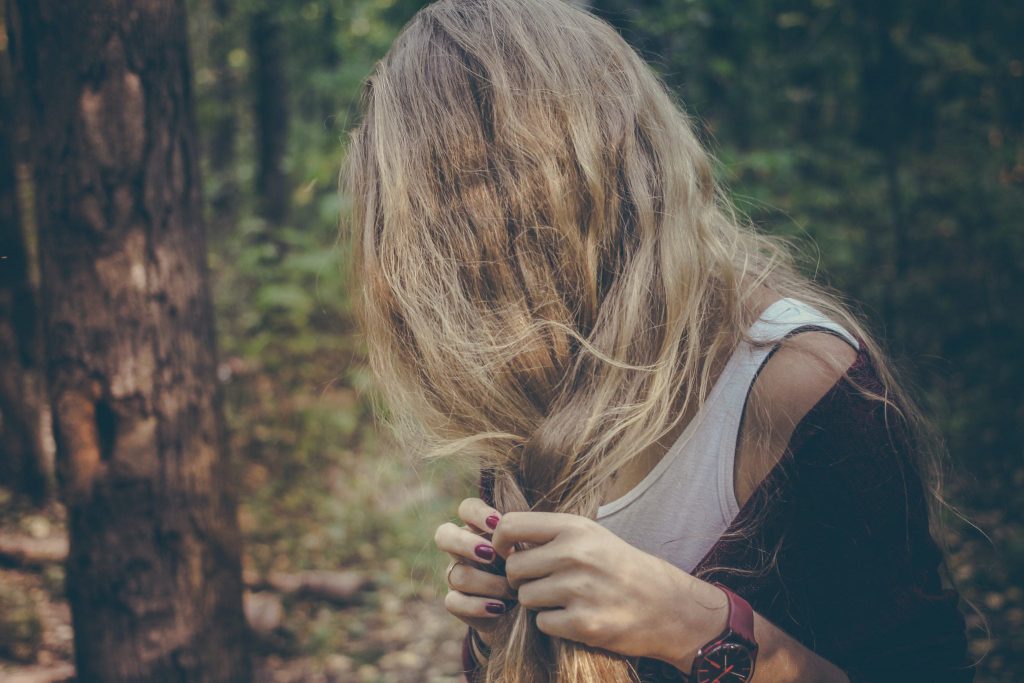
Scalp acne is just as irritating and persistent as the face, chest or back acne yet it’s surely way easier to camouflage the blemishes affecting the skin on the head. What causes scalp acne and how to get rid of it? Can it be the symptom of folliculitis? How to care for the acne-prone skin on the head?
What causes scalp acne?
Both scalp and face acne have the same cause: the intensified activity of the sebaceous glands and clogged skin pores due to products and impurities. Pimples on the head are the most common in teenagers but they may also affect adults. There are plenty of scalp-acne triggers: too much sugar in a diet, stress, hormonal imbalance, pollution, overuse of a blow-dryer, overheated scalp, wrong hair products and not washing the hair often enough.
How to get rid of the scalp acne?
No matter where the pimples occur, you cannot pop them. You need to start the proper treatment to get rid of the blemishes. The scalp-acne treatment is tricky because of the hair barrier that makes it hard for us to apply ointments and creams. We don’t suggest a haircut, though. This way you would make the pimples more noticeable.
If inflamed lumps on your head persis for several days and your hair looks greasy, you should consult a dermatologist who will prescribe the proper therapy. As far as scalp acne goes, you can use most anti-acne products except for benzoyl peroxide which may lighten the hair color. Zinc and salicylic acid give good results because both ingredients dry out the pimples and disinfect the skin. Anti-dandruff shampoos based on ketoconazole work well too.
You need to treat scalp acne because negligence may lead to hair loss and acute inflammation.
How to care for acne skin on the head?
When inflamed lumps affect your scalp, you need to analyze the ingredients in your hair products. They are often the wrongdoers and after giving them up, the problem disappears right away. Clogged skin pores directly cause the inflammation because sebum produced by the sebaceous glands cannot find the way out.
What causes clogged skin pores then? Mostly oils, particularly when you apply them directly to the skin. Emollients included in hair conditioners may have a similar effect. Moreover, styling products have a negative effect on the scalp – the excess prevents the removal of oil. That is why you’d better give them up during the treatment.
Scalp acne vs folliculitis
Inflamed pimples on the scalp may result from the folliculitis triggered by bacteria or viruses. The folliculitis occurs when germs penetrate the follicles through the outlets of the glands and cause the inflammation there. A burning, itchy pimple appears around the hair – if you spot it, you need to see a skin doctor.






Leave a Reply